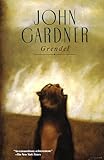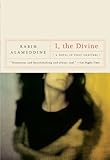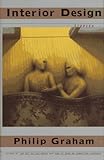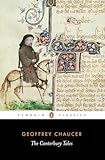1.
The writer and critic John Gardner is perhaps best remembered these days for his novel Grendel, and for a quote on the writing life that has influenced generations of writers ever since: “Art begins in a wound, an imperfection — a wound inherent in the nature of life itself — and is an attempt either to live with the wound or to heal it.”
 Gardner spoke from his own experience. He felt responsible for the death of his brother in a farming accident, a death that took him many years to finally approach in his short story, “Redemption.” In his 1978 Paris Review interview, Gardner said, “Before I wrote the story about the kid who runs over his younger brother…always, regularly, every day I used to have four or five flashes of that accident. I’d be driving down the highway and I couldn’t see what was coming because I’d have a memory flash. I haven’t had it once since I wrote the story. You really do ground your nightmares, you name them.”
Gardner spoke from his own experience. He felt responsible for the death of his brother in a farming accident, a death that took him many years to finally approach in his short story, “Redemption.” In his 1978 Paris Review interview, Gardner said, “Before I wrote the story about the kid who runs over his younger brother…always, regularly, every day I used to have four or five flashes of that accident. I’d be driving down the highway and I couldn’t see what was coming because I’d have a memory flash. I haven’t had it once since I wrote the story. You really do ground your nightmares, you name them.”
Trauma, of course, arrives from many sources: the death of a family member, sexual assault, the psychological and physical abuse wreaked by dysfunctional families, discrimination’s poison, the catastrophe of war or famine, or any crushing event that reorients a child’s understanding of the world. The list of harsh surprises is probably endless. Perhaps that is why Gardner’s description of an art-generating wound resonates with any writer searching for the truths of his or her childhood. Damage survived through one’s art can be a heroic story we tell ourselves, a suspenseful tale of personal struggle and possible transcendence. For me, Gardner’s insight certainly helped shape my understanding of the secret imperative behind my early attempts at writing short stories: they were ripples that arose from but could never undo two defining events of my childhood.
When I was just past 10 years old, my mother twice attacked my father: first, with a steak knife over the dinner table, and another evening she slammed his head between the rungs of a stairwell’s banister, wrapping a towel around his neck to strangle him. Each time, I threw myself between them, a mere child wrestling with an adult drama whose origins I knew nothing about. To this day, the motives for that violence remain obscure. My parents somehow managed to stay together, shedding their worst arguments and over time adopting quiet guerilla warfare. In spite of daily counter-evidence, an official line developed that we were a happy family. Any past violence was a story that couldn’t be told.
Other stories awaited me behind the closed door of my room. I entered a world of books. Though I couldn’t have put this into words back then, I must have understood that the more stories and novels I read, the more I increased the real estate inside where I might find a place of my own. My life is unimaginable without books, and that inadvertent gift arising from my parents’ desperate disputes and then silence has provoked my life-long artistic gaze.
2.
Gardner’s insight has helped many writers, but as the years have passed I’ve come to suspect that it also conceals a further truth. A psychic wound can be its own healing agent, may itself contain a gift, and may offer a form of unexpected inspiration. Yet how to embrace this elusive not-damage within the wound?
 I, The Divine: A Novel in First Chapters, by the Lebanese-American writer Rabih Alameddine, offers one possibility. This brilliant novel takes the form of a memoir-in-progress being written by one Sarah Nour El-Din. Every chapter in the book is a Chapter One, because Sarah can’t seem to find the proper entry into her memoir. She keeps beginning again, trying to start from this angle, then that angle, searching for the most fruitful approach to the rest of her life’s story. But these failed first chapters give the reader a deeper sense of her marriages, her lover, her son, father, mother, stepmother, sisters, grandfather, her life in Lebanon and in America, and her artistic ambitions.
I, The Divine: A Novel in First Chapters, by the Lebanese-American writer Rabih Alameddine, offers one possibility. This brilliant novel takes the form of a memoir-in-progress being written by one Sarah Nour El-Din. Every chapter in the book is a Chapter One, because Sarah can’t seem to find the proper entry into her memoir. She keeps beginning again, trying to start from this angle, then that angle, searching for the most fruitful approach to the rest of her life’s story. But these failed first chapters give the reader a deeper sense of her marriages, her lover, her son, father, mother, stepmother, sisters, grandfather, her life in Lebanon and in America, and her artistic ambitions.
Eventually a first chapter takes on one of her troubled family’s most shameful secrets: Sarah’s sister Lamia, a nurse who overdosed her patients to death. Sarah feels she can’t begin to explain her sister’s actions, so instead she announces, “I will let her speak for herself” and includes in the chapter her imprisoned sister’s awkwardly eloquent letters. By allowing her sister a voice, something breaks through to Sarah. She begins to see her sister from the inside.
Two first chapters later, Sarah writes about a harried day in the life of her despised stepmother Saniya, from what she imagines is Saniya’s point of view. A few first chapters later, Sarah imagines a walk through the streets of New York from her first husband’s perspective. Of course Sarah can’t really know what he contemplated as he navigated from university classroom to apartment, any more than she knows what terrain her stepmother’s thoughts might occupy. But by now the relentless I, I, I of Sarah’s memoir has deepened into the competing perspectives of her extended family. They are no longer mere actors in her story but people with stories of their own, and this realization enables Sarah to move from the role of victim to that of survivor, relinquishing blame through the transformative gift of empathy.
Much like Sarah, for too much of my life I focused on my younger self’s understanding of my parents, turning them into an easy story to tell. We children of dysfunctional families try on certain emotional techniques to survive our parents, to dodge or undermine their worst behavior. Yet if we’re successful at protecting ourselves, in later life we run the risk of holding on to our hard-won tactics too long, and using them — often futilely — against the world, as if the world were our parents. In doing so, we remain locked in childhood without even knowing it.
For writers, the key to avoiding such a fate may lie in our urge to shape our characters’ possibilities. We labor to bestow a depth that allows them to take their first breaths, and by accepting their surprises we may be led to fruitful, unfamiliar territory. These skills we have learned and forged in our writing can be applied elsewhere.
3.
My mother’s name was Edith, not Mom. This is an important distinction for me to remember. Too often, in remembering my parents, I still think of them by their official titles, the names that defined their relationship to me. Yet they were individuals fully existing in their own lives long before I was born. My mother’s father died when she was three. My father, at about the same age, was locked in a rat-infested shed for a day by his older brother. Perhaps the parallel traumas of early abandonment eventually led them to each other.
Throughout her adult life Edith, my mother, smoked heavily but never, ever was her persistent cough to be associated with that smoking. To suggest such a connection invited certain fireworks. My mother also developed an obsession about cholesterol, that dietary evil of all evils. Whenever my mother went into a hacking fit and coughed up phlegm, she announced with some satisfaction that this was a “cholesterol ball” that she had managed to release from her system. She would proudly display her handkerchief to any interested parties.
My mother also developed the habit of driving from our home in Long Island to a town 30 miles away, a 60 mile round trip, to buy a hamburger at McDonalds. I can only imagine the countless unworthy McDonalds she drove past on her journey, but she believed that particular outlet served the best hamburgers, no other could compare. It was wise not to contradict her, or to express disbelief when she asserted that all the traffic intersections on her ride home had been deviously programmed to delay her car at one red light after another.
 My mother’s imagination, in these and many, many other examples, used to drive me to infuriated distraction. Why couldn’t she see the foolishness, even the danger of these beliefs? Of course, at the time my exasperation was fueled in part by fear—would I one day become like her, impervious to even elementary logic? Now, I realize that as a child I studied with a master. However emotionally isolated and frightened my mother may have been, she unknowingly gave me the gift of her imaginative skills, and I had just as unknowingly received them. This gift became the key to many of my fictional characters, including the increasingly desperate multiple personalities of the mother in my novel, How to Read an Unwritten Language, and the construction of fantasies that threaten to go awry in my various characters’ interior lives in the story collection Interior Design.
My mother’s imagination, in these and many, many other examples, used to drive me to infuriated distraction. Why couldn’t she see the foolishness, even the danger of these beliefs? Of course, at the time my exasperation was fueled in part by fear—would I one day become like her, impervious to even elementary logic? Now, I realize that as a child I studied with a master. However emotionally isolated and frightened my mother may have been, she unknowingly gave me the gift of her imaginative skills, and I had just as unknowingly received them. This gift became the key to many of my fictional characters, including the increasingly desperate multiple personalities of the mother in my novel, How to Read an Unwritten Language, and the construction of fantasies that threaten to go awry in my various characters’ interior lives in the story collection Interior Design.
The empathy I needed to create these characters led me to a belated sympathy for my mother. I came to look at her invention of cholesterol balls as an attempt to convince herself smoking wasn’t dangerous. They served to mask her secret fear. My mother’s championing of a singular, incomparable McDonald’s hamburger outlet simply added a little spark into her life, a way to quit the house and the hours of solitaire she played, and go on a small journey. Those malevolently programmed traffic lights on her return drive offered another sort of excitement: despite this conspiracy against her, Edith, my mother, always triumphed and made her way back home.
4.
My father’s name was Bill, not Dad. He was a quiet man who never learned to say, “I love you.” He’d stiffen in a welcoming hug, a nervous smile pasted on his face. His heavy drinking created an invisible wall between himself and his family. He held inside more than I could imagine. By the time of my teen years, he had stopped arguing with my mother and let her have her way, accepting any derision silently. When I was a young man, his passivity symbolized everything I wanted to avoid in my life. I didn’t understand that he had given up on his marriage and further battling meant nothing to him.
Bill, my father, worked for an import-and-export firm that owned a number of commercial buildings in downtown Manhattan. His job was to make sure the company’s buildings came as close to full occupancy as possible. One of the ways he achieved this was by regularly making the rounds, floor by floor of each building, developing relationships with tenants who hailed from Jamaica, India, and Pakistan, Orthodox Jews from Brooklyn and Chinese businessmen and women from Hong Kong.
One summer my father found me a job operating the freight elevators for his company’s buildings — an easy enough task once I got the hang of it, and completely off the books, since I was replacing the regular elevator operators as they took their vacation time. Sometimes my father would take me along on his rounds during my lunch break, and I watched his easy banter with the tenants, the jokes they threw back and forth, his attentiveness to their concerns. Though they all called him Bill and not Mr. Graham, their affection and respect was obvious. I took it all in, shocked that he was so admired, since he’d long been an object of contempt in his own home.
 Only many years later did I begin to suspect that my father, Bill, offered this glimpse of his business life so I would see a side of him he buried at home. He attempted to transform himself in my eyes from a one-dimensional to a three-dimensional character. Here is another gift I accepted without knowing I had accepted it — or without acknowledging, unfortunately, that I had any clue I understood what he was trying to give me. Too often I have been a slow learner, and in this case I learned too late to thank him for this, and for something else, perhaps my father’s best gift: his easy camaraderie at work with so many different types of people. I believe his example helped me appreciate my high school encounter with the Middle-English thicket of The Canterbury Tales. Geoffrey Chaucer’s sly generosity revealed the voices and contradictions of the bawdy Wife of Bath, the corrupt Pardoner, the vain Squire, and the rest of that motley group of pilgrims, and showed me how to use, in my first budding attempts at stories, what I’d already gleaned from my father: a necessary curiosity about everyone one encounters.
Only many years later did I begin to suspect that my father, Bill, offered this glimpse of his business life so I would see a side of him he buried at home. He attempted to transform himself in my eyes from a one-dimensional to a three-dimensional character. Here is another gift I accepted without knowing I had accepted it — or without acknowledging, unfortunately, that I had any clue I understood what he was trying to give me. Too often I have been a slow learner, and in this case I learned too late to thank him for this, and for something else, perhaps my father’s best gift: his easy camaraderie at work with so many different types of people. I believe his example helped me appreciate my high school encounter with the Middle-English thicket of The Canterbury Tales. Geoffrey Chaucer’s sly generosity revealed the voices and contradictions of the bawdy Wife of Bath, the corrupt Pardoner, the vain Squire, and the rest of that motley group of pilgrims, and showed me how to use, in my first budding attempts at stories, what I’d already gleaned from my father: a necessary curiosity about everyone one encounters.
5.
James Baldwin, with his usual wisdom, has written, “Any writer, looking back…finds that the things which hurt him and the things which helped him cannot be divorced from each other; he could be helped in a certain way only because he was hurt in a certain way.”
We writers are used to looking back, locating in our rough drafts any glimmer that might show the way forward. A story, a poem, a novel, or a memoir won’t reach its best destination without the labor of reconsideration, without the ability to see afresh what is obscure, or incomplete. And neither will the story of our lives.
Let’s say your family has given you…a sweater. A common enough gift, but it’s a terrible, perhaps even an evil sweater. The combination of clashing colors resembles several things you might have once stepped on, in a nightmare. Worse, it doesn’t seem to fit. There are three arms, each one a different and incorrect length, and no hole for the crown of your head to peek through; instead, a round empty circle in the back gapes open about halfway down your spine.
What to do with this? It can’t be worn in any comfortable way. Hide it in a drawer and hope the moths will find it? Place it in the middle of a box of old clothes, deliver it to Goodwill, and rush out the door before anyone notices? Or take the sweater out to the backyard, improvise a ceremony, and then burn it, trying to read the smoke trails as they slip away in the air?
Each of these tactics is a possibility, and they may even be the most popular choices. I’d like to suggest something else. You cannot wear the damn thing, it will never fit, so stop trying. But you can’t ignore it, either. And its destruction would only be an illusion. Instead, take the sweater apart. Unravel it thread by thread. Examine the length, thickness, and color of each thread and discard nothing of what you’ve been given. Then, prepare your own pattern and make a new sweater, one that fits. Or make a set of gloves, a hat with the warmest earflaps, hand puppets, or a scarf. If you don’t like the scarf, take that apart and make a tea cozy.
Whatever you create will still be made from that evil ugly sweater. There’s no escaping that, it will always be there. So make it into something you can use.
An early version of this essay was initially delivered as a craft lecture at the Vermont College of Fine Arts.
Image Credit: Pexels/Nguyen Nguyen.










